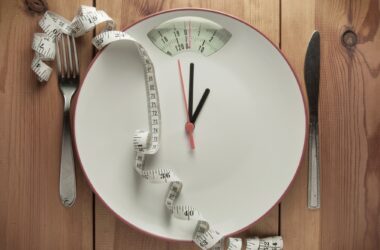Do you struggle with cravings and loss of control when it comes to certain foods? Food addiction affects many people around the world. The experts at CardioMender, MD Weight Loss Specialists can help you change your relationship with food from a destructive to a positive one.
What is a Food Addiction?
Food addiction is the compulsive and unhealthy consumption of certain foods to feel pleasure. When someone has a food addiction, they experience a loss of control and are unable to stop their indulgence in certain types of food despite the negative consequences their eating habits are having on their physical and mental health.
Over time, a food addict develops a dependence on certain trigger foods, and each time the person consumes more of it, the pleasure felt compels them to keep eating more and more of it. The trigger foods are mostly highly palatable foods that trigger feel-good hormones in the brain, thus making someone quickly feel the need to consume those foods again.
There are several reasons why people develop food addictions. Some people are genetically predisposed to addictive behaviors, while others use food to cope with stress or other underlying emotional issues. The development of food addiction can also be influenced by social pressure to attain a particular body image. The food industry literally feeds and profits on this. They actually employ food engineers whose mission it is to come up with foods that cause us to overeat and seemingly grow progressively dependent on consuming such foods. This is the root cause as to why 70% of Americans are overweight and Western society has an obesity epidemic.
Symptoms of Food Addiction
Symptoms of food addiction include:
- Craving for certain types of food despite having finished eating a nutritious meal.
- Feeling guilty after overindulging in particular foods but still being unable to stop oneself from doing it again soon after.
- Making excuses for giving in to your food cravings.
- Struggling to control your consumption of unhealthy foods despite knowing the negative consequences.
- Indulging in a food craving even when you’re feeling full, to the point of feeling excessively and uncomfortably stuffed.
If you are struggling with any of the symptoms above, get in touch with a specialist and seek help.
Building Healthier Habits
With the right strategies, you can address food addiction and build healthier habits. Here are some of the strategies you can use to build healthier habits:
- Identify your triggers and manage them. Once you’ve acknowledged that you have a food addiction, you need to figure out what triggers your addiction and find healthy ways to cope with the underlying issues to break the vicious cycle of addiction.
- Change your diet. Changing your diet can help reduce the urge to overindulge in unhealthy, addicting junk food. Why do you think they call it ‘junk’? You can do this by incorporating more fruits, vegetables, lean proteins, and whole grains into your diet.
- Identify the foods that trigger cravings and avoid them. Take note of the foods that trigger your cravings and make conscious choices about changing your eating habits.
- Remove Trigger Foods from your environment. Throw out trigger foods and don’t bring them in the house or into the workplace, if at all possible. Otherwise, keep them out of sight.
- Create a support system. Join a support group or surround yourself with nonjudgmental people who can help you stay accountable to your pursuit of healthier habits.
- Establish a routine. Creating a structured eating schedule and meal planning is very helpful when attempting to change your eating habits.
- Practice mindful eating. Pay attention to your body’s cravings, hunger, and fullness cues. Training yourself to differentiate between true hunger and non-hunger triggers can help you avoid eating when it is not necessary.
Overcoming food addiction can be challenging, but it is possible. If you’re struggling with a food addiction, healthy weight loss is available at CardioMender, MD. At CardioMender, we offer individualized weight loss programs that provide a comprehensive approach to weight loss. Our weight loss program can help you address your food addiction, work towards achieving your weight loss goals, and help you develop a healthier relationship with food.
Get the Help You Deserve
Are you trying to rid yourself of cravings or of a possible food addiction? Get the help you deserve with CardioMender, MD Weight Loss Specialists. Our team of weight loss specialists can help you identify the underlying causes of your food addiction and guide you on how to break free from its grip.
Get in touch with us today for more information about our weight loss program and how we can help you overcome food addiction.
Image source: Goodbishop via Shutterstock






